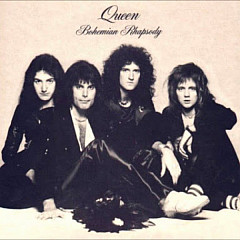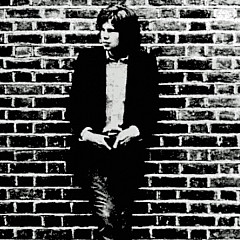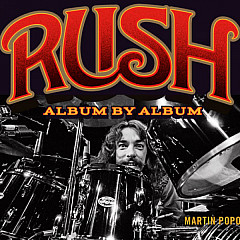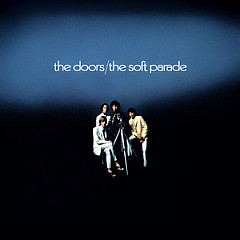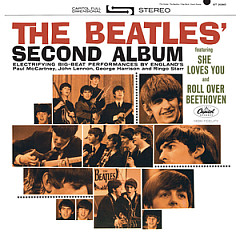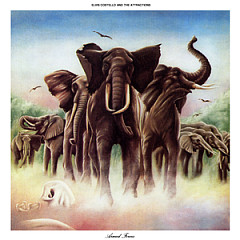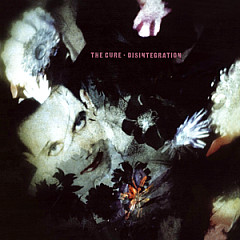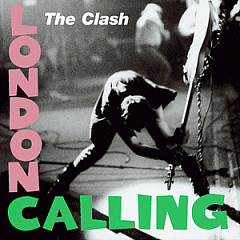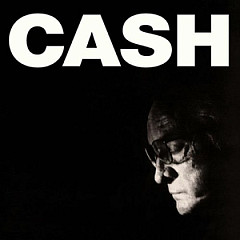Singh exploded onto the scene in 1997 with the Cornershop single "Brimful of Asha," a #1 hit in the UK. With it, Singh appeared to come out of nowhere - never mind that Cornershop had actually recorded two albums before When I Was Born for the 7th Time, the one with "Asha."
So it was that the "overnight success," which was actually years in the making, catapulted Singh into celebrity.
The problem was that Singh never wanted to be that kind of artist. The template he wanted to build around was more Ween than Hanson. He wanted to be an album-artist who made meaningful music his own way, not a singles singer.
Even after "Brimful" delivered him into the Big Time, Singh maintained his integrity and stayed true to his calling. He kept making great albums, and the critics kept praising his work. But the echo of "Brimful" drowned out his new music.
Cornershop recorded more songs that sold well, but today Singh looks back on "Brimful" with mixed feelings. If it hadn't been for the noise that song created, he might have been received more popularly as an album-artist, and he might not have been pigeonholed as "that guy with that awesome 'Brimful of Asha' song."
It's actually been only recently, Singh feels, that fans are starting to return to his albums to hear them the way he'd intended. Better late than never.
Of course, Singh will never know how things would have gone if not for the success of "Brimful." Time only runs one way. Besides, he's hardly living in misery. Singh considers himself lucky. He's proud of the albums he's made, and he looks forward to making more. Still, while discussing the topic, he can't help but wonder out loud whether or not the success of "Brimful" was ultimately a good or a bad thing.
While putting together my questions for Singh, the primary guideline I set for myself was "as little Brimful as possible." The song's story is already well known, and I figured Singh would appreciate the opportunity to talk about other things.
So, in our interview, Singh discusses his songs other than "Brimful." There was quite a lot to talk about.
 Jeff Suwak (Songfacts): Hi, Tjinder. How are you?
Jeff Suwak (Songfacts): Hi, Tjinder. How are you?Tjinder Singh: Good. It's a lazy Easter holiday here [England], so everything's quite relaxed.
Songfacts: Is Easter a big holiday there?
Tjinder: Yeah. It's a long weekend. Friday's off and Monday's off, as well.
Songfacts: Really? We don't really get days off commonly for Easter.
Tjinder: Well, what can you do? Our Lord is very good with us. [laughs]
Songfacts: Well, first let me thank you for taking some time out of your lazy Easter Sunday to do this interview.
Tjinder: Oh no, that's fine. Thanks for the preview questions. I looked over them this morning and I'm very happy about that.
Songfacts: Yeah, I've watched some of your old interviews and heard your thoughts about your music and art and whatnot, and I figured you were somebody who would appreciate a more in-depth conversation than the usual kind of fluff stuff.
I found an old Guardian interview that called you and Cornershop "something of a square peg." I get this feeling you'd enjoy this description of yourself, and it makes me wonder if your uniqueness and experimentalism is part of a deliberate artistic philosophy, or more of an extension of who you are. Do you think of yourself as a square peg?
Tjinder: Well, I think on the first part, do you consider yourself of a square peg? I've never wanted to be a square peg, but certainly over the years and certainly over the decades, one must realize and embrace the fact that I'm a bit of a square peg. Because over that period of time, other people have done things a lot simpler than we do. In a way, we've always felt we had to work from square one... as well as being a square peg.
We have to work from square one with every single thing we do, with every record we release. We always reset, so we have to try again and try again. And I think over the years that sets you apart from other people, by the sheer nature of having a different starting point.
So, I think we are persistent. My motto at school was "put to preserve." Not that I thought I'd ever follow my school's motto, but I felt it helped with the system because I'm not a musician. I play instruments, but I'm not a musician. Luckily, the music that I like, even The Beatles, is not mathematics. It's quite easy.
Uniqueness. I don't think that's for us to say. And experimentalism. It's probably not the word, but we try to do things to keep myself, to finish a song. There's more of a necessity to finish it.
We may have succeeded in some respects but in other respects we've seen it coming, even though people think that's it's funny to think that something like Brexit would ever happen. My father once told me that the time will come when I'll be asked to leave the country. That has always stayed with me.
Songfacts: Your father actually said that to you? That's pretty astonishing.
Tjinder: Yes. Well, the other thing is, in '48 he was moved on as part of the Partition of India, where parts of Pakistan and India were split from each other. '68 was the Rivers of Blood speech with Enoch Powell. '98 was a pretty good year for us. So, all the 8s seem to have some sort of momentousness for us. So every 10 years something big happens. Not necessarily good, I'm afraid. So, I wait for next year.
Songfacts: Wow. I've followed Brexit pretty closely from over here, but I didn't know all that history behind it.
Tjinder: Unfortunately I can't move away from how things were etched in regards to the politics of the situation. In a song like "Roof Rack" [1995] there's a reference to Enoch Powell.
In another way, coming back to the square peg thing, it's nice to be different, but sometimes one must wonder why one is always a bit different, and unfortunately we're not just different because of the way we come into music, or the way politics comes into it, we're also different because we were forced to be different. We've not had an easy time of things.
Some of it is not anyone's doing, but I'm sure we'll move into it as things progress.
Songfacts: Let's move on to collaboration. Throughout your career, you've done a lot of collaborations. This makes me wonder if that's just something you enjoy, or if there's some other reasoning to the practice. Also, it makes me wonder how you go about this. Do you go to another artist with a song readymade and say, "Hey, want to record this?" Or do you go to an artist and say, "Hey, want to make a song together?"
Tjinder: Well, I think the reason for collaboration is to do something different. I think even with a song that doesn't collaborate, in a way it is a collaboration, because I generally write the first parts of songs, the lyrics and the basic chords, and then it's left open to other people to come in and put their own stamp on it.
Then the next level beyond that is to get people on to do things as well, if indeed we feel the direction could lead to something worth doing. And all the time that's happening, the song is taking more form than one could have thought of to start with. While it takes more form, it gives itself a reason to be finished.
I think that's really how most songs are approached: They turn into something along the way. There always has to be something at the end to begin giving the enthusiasm to be finished.
In terms of collaboration, I think it's the element of doing something and really not knowing where it's going, and even pushing it further out.
Songfacts: How about your collaboration with Allen Ginsberg on "When the Light Appears Boy." If I'm not mistaken, that song was released the year that Ginsberg died. Were you actually with him or did you sample some of his previous spoken word stuff?
Songfacts: He must have been quite ill at that time.
Tjinder: He was ill. He didn't show it, other than that he looked a little frail. We walked to his apartment. Yale [University] had looked him up in the Yellow Pages and he agreed to collaborate. We got permission from Yoko to do a cover of "Norwegian Wood," and we also met Sean, which helped secure that, and we went to his flat and we recorded it.
He said that he'd written the poem and always thought that it would lend itself to being a song. So, we then recorded it in his kitchen. And the way that we recorded it was simply on cassettes, because we wanted to try to get the figure that he used to have in the halls and in live recordings that he would have done in the '60s and '70s.
It might have been recorded in '95, I'm not sure. But in '96 I went to India, and I recorded the main parts of the instrumentation in the Punjab. And putting them together seemed to work nicely, not just for us, but also for the past of what Ginsberg had done.
Songfacts: That makes the song even more powerful, knowing that he recorded in some of his last days.
Tjinder: We had a show the next day, and we asked if he'd be coming. And his partner Peter [Orlovsky] came, but said Allen was a little too tired. He was frail. We didn't know he was probably more ill than he let on.
Tjinder: Well, the song itself was started many years ago as the title of a cartoon series I wanted to do. We got some characters together, but it didn't actually go too much further than that. Then there was an international festival and the BBC had shipping containers, and they wanted different artists to do different things with the view of education and children. So, that then came back to my mind and my idea, with the hippie being a very loose-thinking, open sort of character. They're like kids who'll sort of come at you from a different angle. So the hippie idea came from that, and that's why there's children on there as well.
Then we went to school. We spent three days with them. That was a great experience. When we first started out, they were just copying what the next person had said, and then the next day we said, "We need to make them think for themselves." So we got them to close their eyes and start meditation, and therefore be closer to their own world. So then the creative process was theirs and theirs alone, and then they were asked to explain the little story they made up to other kids.
So, the process was a lovely little process that hopefully gave the kids an element of being in their own space, thinking for themselves, coming to their own conclusions, which I think is a great skill not just for what we require but for later on in life.
That's what I do like about the hippie proposition: That one can be open. That openness it can lead to ridicule. The movement itself probably has gone back, but in terms of the ideals, the hippie's a pretty good thing. Hence, liking that sort of thing.
Ginsberg is an example of who I like in the movement, but sometimes I think it's all a little too wayward for me.
Another thing about Ginsberg is he lived what he talked. I don't think there's too many people who can say they do that.
There was a talk on Ginsberg at a small café in Soho, and they cancelled it, saying they can't hear anything, which I thought was quite terrible and sort of against the grain of what Ginsberg would have done. He would have gotten on a table naked to make sure that he could be heard, and not be impaired by what's around him.
So, that's the standard nowadays compared to an open mind.
Songfacts: Another song I was hoping to get a little insight on is "Sleep on the Left Side." For years I've been listening to that song and trying to figure out exactly what it's about.
It's also interlaced with growing up. That sort of goes back to my childhood. The spoken-word part in it, in particular, is just about spending summers doing quite nothing actually. There wasn't much to do, so that's where the foot race and alleys come into it.
The "green goddess" is the army. I think it was '76, and the army were put on standby to put out fires, because I think the fire service was on strike. The labor counselors, my father was a counselor, and he worked for the Labour Party for a while.
It's an amalgamation of religious imagery. Sikhs have swords. That's one of their five Ks.
Songfacts: So your family was Sikh?
Tjinder: Yes.
Songfacts: Are you a Sikh?
Tjinder: I'm not a practicing Sikh anymore. I'm a Darwinist.
Songfacts: In the song you mention "being born again for the seventh time," which is also in the title of the album. Is there any significance to the seventh time, as opposed to the sixth or the eight?
Tjinder: At the time, it was a good number. Afterwards I learned that seven is a sign for completeness, which I think fits in quite nicely with the album or the song, as well.
Songfacts: Well, that's a nice coincidence.
Tjinder: [laughs] Yes. For once, I got the right number.
You know, in a way it's nice to have a song that's carried on, and the fact that one can now talk about it through the prism of something like Brexit is a good extra bow to the song.
"When we let it up, let it breathe." The funeral pyre. That's the body being burned.
"Planet's up." More than just our planet, in terms of the exit. But within any of those lyrics there's different ways it can go, and I think that's what gives the song more flexibility and longevity. People have to think for themselves, and it's good to hear that that's what you're doing and that you're perplexed about it. That's a good thing. That's a great thing.
Songfacts: Absolutely. With Bob Dylan and Tom Waits and all the greats, there are multiple levels to the music. That's the kind of music I enjoy, and I love contemplating exactly what's being talked about in the music.
Tjinder: Well I hope that's left enough room for a third party.
Songfacts: Since we're talking about your childhood in "Left Side," who were your musical influences?
 Tjinder: I don't really think there is. It's a bit like this: When someone does a cover version, it's very nice that they've done it, but usually, even with a song like "Brimful," which people hear every now and then, the way that they execute it is a lot different to the way that we did it. So, I think part of what we do, it just happens. If we think about it, it would be too much to think about, and then we would never be able to finish songs, which is sort of what happened with the stuff I'm writing now.
Tjinder: I don't really think there is. It's a bit like this: When someone does a cover version, it's very nice that they've done it, but usually, even with a song like "Brimful," which people hear every now and then, the way that they execute it is a lot different to the way that we did it. So, I think part of what we do, it just happens. If we think about it, it would be too much to think about, and then we would never be able to finish songs, which is sort of what happened with the stuff I'm writing now. I was a very lucky chap. I didn't really hear Western music until the age of about eight. Maybe even later. The first music I got into was religious music. That's Sikh devotional music. Punjabi folk music. We also had an old Sikh temple. Half the hall conducted the Sikh devotion, and the back of the hall was the Christian denomination, and in the middle you had the kitchen. So you'd eat and you'd hear speakers from the Sikh denomination mixing in with the clapping going on.
I've always loved gospel music. I'm a big collector of gospel stuff.
Songfacts: Even as a Darwinist?
Tjinder: Yes. Even as a Darwinian. The role of devotional music is to inspire a congregation, so, yeah, I've gotten hit a few times with it. That was my first music, but we used to also record different bands as well, and quite a variety of different musics.
"Blinded by the Light." When that was #1, a friend gave us that on a seven-inch. Up until then, our sevens were all Asian.
And indeed going out to clubs. We were the first of different ethnicity to go out to the clubs, and at times that was a bit scary. That was in the mid-'80s. But then when we moved on into the '90s, things slowly changed, and hopefully we were part of that change as well. In terms of Asians, as a group.
That all sort of led to a more Westernized music collection, but I think it was a great benefit to do that, and to do that later. The Beatles were something we sort of heard about, but we didn't have our parents' record collection to give us that, so it was a great journey, a great search. There wasn't an internet, so there really was an element of listening and going by what you heard rather than what people said.
There's certainly a lot of things one would prefer were elements of our direction, but we couldn't really do Kurdish songs or anything like that because it would be sacrilegious, even for a Darwinian. We couldn't do it.
Songfacts: Do you enjoy performing live or writing music more?
Tjinder: Well, we stopped performing live now, so it must be the other. [laughs]
Songfacts: You've officially stopped?
Tjinder: Well I wouldn't say "officially," but we haven't toured now for five years. The hassle of touring for us, well for me in particular, wasn't justified, so I thought it was best to stop. When we did stop, I haven't felt good for the last five years or so.
Songfacts: I'm sorry to hear that.
Tjinder: Well, hopefully I'm getting better.
And that sort of goes back to what I'm writing now. Before, I'd always have lots of lyrics and ideas in my head, because it's a constant thing: You wake up in the middle of the night writing stuff. When you're not able to do that...
I've still persevered in terms of doing music and maybe having some lyrics, and then going back to put the brain in the body. It's not the way I would like it. Lately, I've had a bit more headspace to get back to finishing some songs. Unfortunately, it's a lot harder that way, because it's all about finishing something and moving on to the next bit, or juggling five or six words, knowing you're moving with them. Actually, the juggling makes it easier because then you know you've got different songs.
Also, with that happening, that's when we did a lot of the label stuff. It was a lot of work, but it was manageable to do.
Songfacts: You mean Ample Play?
Tjinder: Yes. Then again, we haven't done that for a good year, because we haven't had as much enthusiasm for what we heard as much as we have had in the past. We're very proud of the label, and we're very, very proud of the groups we have on there, but we'll see whether we'll carry on. Right now, my focus is on finishing songs.
Songfacts: And when you finish those, will you release them as Cornershop?
Tjinder: Yes, it'll be Cornershop. We had the misfortunate not to break up as a band and reform. A lot of bands have done that, and a lot of them are more popular now than they were then. We stupidly didn't break up. We just carried on.
Songfacts: Are you saying that because you think it's better marketing to have the breakup and then the reunion?
Tjinder: Well, I'm being a bit facetious, but yes.
Songfacts: Well, I'm laughing because I think that's probably true, even if you are being facetious.
Tjinder: Well, we never really took a rest. We did Clinton [Tjinder's side project with band member Ben Ayres] to kind of finish up an album. We didn't think we needed to keep Cornershop going. We thought if we did a good album, it would keep itself winning. And I was absolutely spent after that.
At the moment, there are people coming back to us, in terms of the albums. We love that. In the Guardian, they said our development was every bit as interesting as the Beatles, which is great. We don't aim for that, but if that's what they say after all these years in terms of the albums, then we've done a good job. There's no better accolade we can get than that. So long as we carry on making interesting albums, we'll take however long it takes to finish.
Certainly with Handcream for a Generation, we really put everything into it and thought it was better than When I Was Born. I think Urban Turban was too many songs, but I really enjoyed Urban Turban, an album with a lot of collaboration.
If you do things and they're different, you don't always get the recognition. It takes time for things to happen, and we felt we did a lot of things ahead of what other people have done, and I think we've gotten a lot of credit for it. But it will be nice to just lay back and see what people are coming out with.
As far as I'm concerned, Beck hasn't come out with anything worthwhile since Odelay. It's gotten consistently worse, in my opinion. Not that many bands have reached the challenge of earning their legacy. Maybe Daft Punk.
Songfacts: The talk about the albums relates to this BBC quote that I'd sent to you with the preparation questions, where they said, "Those who predicted Cornershop would be a one-hit wonder after 'Brimful of Asha' had a tearful farewell to the charts, were technically correct because they never another British Top 40 single, but they missed a more pressing point, that Cornershop has always been in it for the long haul." Would you agree with that?
Tjinder: Well, technically, if we're talking Top 50, then we did have some hits.
Other people say we're in it for the long haul, but we're just doing it. We're not really thinking about that. It's a horrible thing and a bit contrived to say we're in it for the long haul. It's just that, once you're in it, you're in it, and it's just a bit of stupidity that we've carried on for this long.
The thing that we get leveled at us is that we are underrated. Which is lovely, in some respects. It's great to be underrated and to know there's more potential than what the band sees, but in another way it's desperately rather sad and unfitting. It again goes back to the idea of having to start at square one. It's made the whole thing not as great for us as it should have been.
We had someone in a tweet conversation ask why did we move away from the earlier sound and the energy that we had. Well, we moved away for survival. That's why we moved away from the early sound.
They're all sort of nice ways of describing it, but ultimately, it's a pat on the back, without the proper recognition that many other groups would have got by now. That's why it hurts us.
I did an interview last week about "Brimful" being one of this Berlin radio station's top songs, and they said, "What does it mean to you?" And really, it's great, it's a lovely song to be remembered by, but the way it brought success falling from the skies also meant that it changed focus on to the remix, so it took the carpet away from underneath us as an album artist. We've never been able to fully recover.
So, though it's been very good in many respects, it's also meant that we've been pigeonholed very easily, and that we've been put down very easily. The slow process of people getting into us through the albums as such has been even more elongated.
Maybe we didn't want to be in it for the long haul. Maybe we just wanted to burn out and get on it. And maybe if that hadn't happened, then heaven knows. But now I'm sounding a bit like that wall-of-sound chap, Phil Spector. He ruminates quite a lot on what could have happened. However, if you put all this as a backdrop to all the crap that one faces as a group, you've got a hell of a story.
Ben's partner said, "You've always had bad luck." I was like, "What are you talking about? We've had great luck." But, ultimately, she may be right. Other groups have just sailed, and we have not.
Songfacts: Okay, now I have a question that's a bit ambiguous, and if it's too ambiguous please feel free to tell me so. But, do you view your sound as a continuing refinement that is progressing towards some final perfection, or do you view your work as a series of separate experiments?
Tjinder: There's no need to perfect things. There's a need to finish it, but not to perfect it. We're a group who, when first started out, liked people like Ween. That's what we loved in a band: that they could come out with so many different sorts of albums and not give a fuck. That's a marvelous place to it.
So, there's no refining it. There's finishing it. That's hard enough.
Songfacts: With your latest album, Hold on It's Easy, you remade all the songs from your first album, Hold on It Hurts, but with a slower and more mellow sound. What made you want to do that?
Tjinder: It was just something that could be done, and could be done differently, and was quite enjoyable. And quite comedic if I may say so.
Songfacts: Do you have any other new projects lined up besides the impending Cornershop album?
Tjinder: There's none. The main thing I've been doing the last few years is fostering dogs. So, other than fostering dogs, nothing.
Songfacts: Wait, so you're actually fostering dogs?
Tjinder: Yes, taking care of them and acting like a sort of halfway house for them.
Songfacts: I thought you were using an artistic metaphor with some esoteric meaning.
Tjinder: No. [laughs]
Songfacts: Could I get the name of the charity?
Tjinder: Yes. It's Terrier SOS.
May 15, 2017
More Songwriter Interviews



